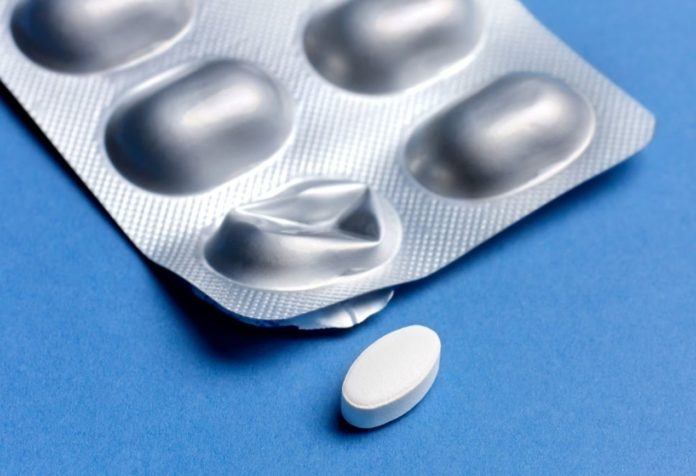Dr Aseem Malhotra, a cardiologist, says in his new book that the public’s over-reliance on cholesterol-lowering medicine has led them to believe they can eat whatever they want without risk.
Few pharmaceuticals divide the medical and scientific community as much as statins, and one person, in particular, has been on a mission to permanently shift the nation’s attitude toward the cholesterol-lowering drug.
Dr Malhotra’s new book, A Statin-Free Life: A Revolutionary Life Plan for managing Heart-related Disease — without the use of Statins, is the result of his research and writing. The basic point is that drugs — the most often prescribed medication in the UK and around the world, with over seven million people using them in the UK itself – are prescribed too quickly, often resulting in unwanted side effects, when the focus should instead be on particular lifestyle modifications. It is advice he gives his own patients and follows himself.
“Lowering cholesterol needs to be relegated to division four of the league of tackling heart disease, because for 99 per cent of the population total levels of cholesterol, and so-called ‘bad’ LDL cholesterol, has almost no value at all in predicting whether or not someone is going to have a heart attack – therefore we should stop obsessing about lowering it,” he said.
“I understand why they became so popular: of all the drugs out there for managing patients with heart disease or those who have already had a heart attack, statins had the highest benefit compared to aspirin or anything else.
“That made it the weapon of choice among cardiologists in tackling heart disease, but it was then treated in a very black-and-white manner. The message became, ‘Let’s just put everyone on statins and we’ll help cure heart disease,’ but science and medicine are not black and white.”
Dr Malhotra, 43, argues this has introduced an “illusion of protection” for the public who think they can carry on eating junk food as long as their cholesterol levels remain low and they take statins – as well as for a medical profession that largely ignored the benefits of an improved lifestyle on heart health.
Dr Malhotra, 43, argues that this has created an “illusion of protection” among the public, who believe they can continue eating junk food as long as their cholesterol levels remain low and they take statins – as well as among a medical profession that has largely ignored the benefits of a healthier lifestyle on heart health.
His activity has brought him into conflict with many people and organizations, including the British Heart Foundation, which asserts that science demonstrates a “clear link” between cholesterol and heart disease.
Dr Malhotra counters: “We’ve now got real-world data from the last three decades that show statins have not reduced death rates from heart disease at all. For those with heart disease, taking a statin every day for five years results in a 1 in 39 chance of preventing a non-fatal heart attack and a 1 in 83 chance of delaying death.
“If you look at groups of people taking statins from all the trials, the overall extension of life span in people with heart disease if someone religiously took a statin every day for five years, without getting side effects, is just over four days. Sounds ridiculous, doesn’t it?
“I’m not saying statins don’t have any effect. I’m saying, ‘Be aware that their effects are marginal at best.’ And everybody – whether you choose to take statins or not – should be focusing on their lifestyle.”
Given that nearly one in five fatalities worldwide are directly related to poor diet, according to the 2019 Lancet Global Burden of Disease study, Dr Malhotra argues that shifting the focus away from statins and toward lifestyle modifications will extend and save lives.
Anyone already on statins should speak to their GP and ask them to explain “in absolute terms” what the benefits of statins are, he says, “and then make an informed decision with your doctor whether or not you want to continue taking the pill.
“Come to a shared decision. That’s the advice I give my patients and I’ve never had a single one come back to me to say they were not grateful that they had that information.”
Dr Malhotra stated that he had a family history of hypertension and relatives with significant risk factors for heart disease. “Knowing that 80 per cent of heart disease is environment and lifestyle and up to 20 per cent genetics, it means there’s something I can do about it,” he explained.
“The absolute base is making sure my diet is healthy. There are two things I avoid: no ultraprocessed food – that’s something which comes out of a packet and has more than five ingredients, and also minimising sugar and other low-quality carbs, such as white bread, pasta, rice, potatoes.
“I’m very active – cycle and resistance training, mainly for physical and mental health. Exercise for heart disease has been exaggerated though, you just need to do moderate amounts: 30 minutes five times a week to get the best benefits for preventing heart disease.
“It’s a brisk walk every day, which is something everyone can do. Reducing stress and getting a good seven hours sleep a night is important too. Combine all that and this heart disease pandemic would be eliminated within a few years.”
Image Credit: Getty
